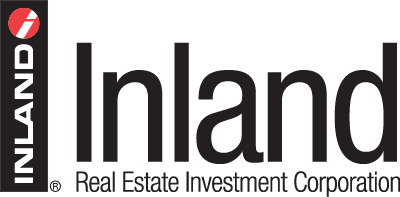The Qualified Intermediary (QI), sometimes known as an accommodator or facilitator, plays an important part in a 1031 exchange. A 1031 exchange cannot be completed without a QI. So, choosing the right provider is key to executing a successful transaction.
Care should be taken when selecting a QI because of the crucial role the entity plays in administering a 1031 exchange. With the QI industry being largely unregulated, an investor can put their exchange at risk if they work with a QI that doesn't have the proper experience and safeguards.
You can be of great value to your clients by helping them know what to look for when selecting a QI for a 1031 exchange. This discussion will equip you with that knowledge.
Why a QI?
To complete a 1031 exchange, an investor must not take "constructive receipt" of the proceeds from the sale of the relinquished property. Constructive receipt is a tax concept in which a taxpayer is liable for income which may not have been physically received but has been credited to the taxpayer's account or otherwise becomes available for them to draw upon in the future. The QI is an entity (person or company) that, for a fee, acts to facilitate the 1031 exchange by entering into a contractual agreement for the exchange of proceeds and properties, helping a real estate investor avoid constructive receipt.
Disqualified Persons
Neither the taxpayer nor a "disqualified person" may serve as a QI. A "disqualified person" is someone who has acted as the taxpayer's employee, attorney, accountant, investment banker or broker, or real estate agent or broker within the two years preceding the date of the transfer of the first relinquished property. For example, if an attorney has provided tax or legal services to the exchanger within the prescribed two-year period, the attorney is a disqualified person.
QI Responsibilities
A QI has three key responsibilities:
- Preparing the 1031 exchange legal agreements and related transaction documents to structure the transaction properly.
- Receiving, holding, and safeguarding the 1031 exchange funds throughout the transaction.
- Advising, coordinating, or consulting on implementing the 1031 exchange transaction to ensure compliance with the Internal Revenue Code, Treasury Regulations, and related Revenue Rulings and Procedures.
Screening QIs
1031 exchangers should avoid QIs that promote their businesses with the lowest fees. Saving a few hundred dollars on a QI will provide little comfort if a client's exchange fails and they lose their tax-deferral benefits that could be worth much, much more. Here's what to look for in a QI.
Established and Experienced
The 1031 exchange process is involved, and it takes a competent, well-established QI to provide services for an investor to comply with the requirements. Therefore, investors are advised to ensure the QI has many years of experience and understands the 1031 exchange requirements so they can effectively guide clients through a transaction.
Policies, Procedures, and Internal Audit Controls
Detailed policies, procedures, and internal audit controls are critical in minimizing the risk of loss to 1031 exchange funds and assets held by the QI. Accordingly, established providers will have sophisticated processes that typically include multiple checks and balances to ensure that the needs and interests of clients come first.
Separate, Segregated Qualified Trust Accounts
It is typical for an active QI to facilitate multiple 1031 exchanges simultaneously. Therefore, it is essential that the QI segregates the funds for each exchange into separate accounts held distinctly for each exchanger's benefit. Segregated accounts help protect client funds if a QI runs into financial difficulty or declares bankruptcy.
Safety of 1031 Exchange Funds
Another important element is the protection of the 1031 exchange funds while being held and managed by the QI. Fidelity bonding safeguards against intentional wrongful acts, such as fraud, theft, and forgery. The selected QI ought to maintain fidelity bonding from a reputable provider to transfer the risks associated with deliberate wrongful acts to another party.
Errors and Omissions Insurance
QIs should maintain an errors and omissions (E&O) insurance policy from a reputable provider. E&O insurance protects the 1031 investor and the QI from risks associated with actual or perceived errors and omissions during the exchange period. Although sophisticated internal controls and processes can minimize the risk of loss, mistakes are always possible.
It is always acceptable – and encouraged – for a potential client to request a copy of the QI's insurance policies, both E&O insurance and fidelity bonding, to verify the insurance underwriter, the policy limit, and the policy term and expiration date, to ascertain whether the policies are sufficient. It is also important regarding the fidelity bonding to note whether the policy limit is "per occurrence" (applicable to each insurable incident) or "in aggregate" (the total or maximum coverage available to investors per 12-month policy period regardless of the number of losses).
Interview Questions
Advising your clients on how to interview and evaluate QIs for a 1031 exchange goes a long way to helping them protect their capital and the tax-deferred status during the exchange process. You can simplify the due diligence process for your clients by offering this basic list of discovery questions they can ask when interviewing potential QIs.
INSERT GRAPHIC
Helping Your Clients
A successful 1031 exchange requires multiple steps and professionals, with a QI as an important member of the transaction team. Selecting the right QI is key. Your clients will benefit from your expert guidance when choosing a QI to help complete their 1031 exchange correctly.
Visit The Inland Academy for a wealth of other 1031 exchange and private real estate investment resources
